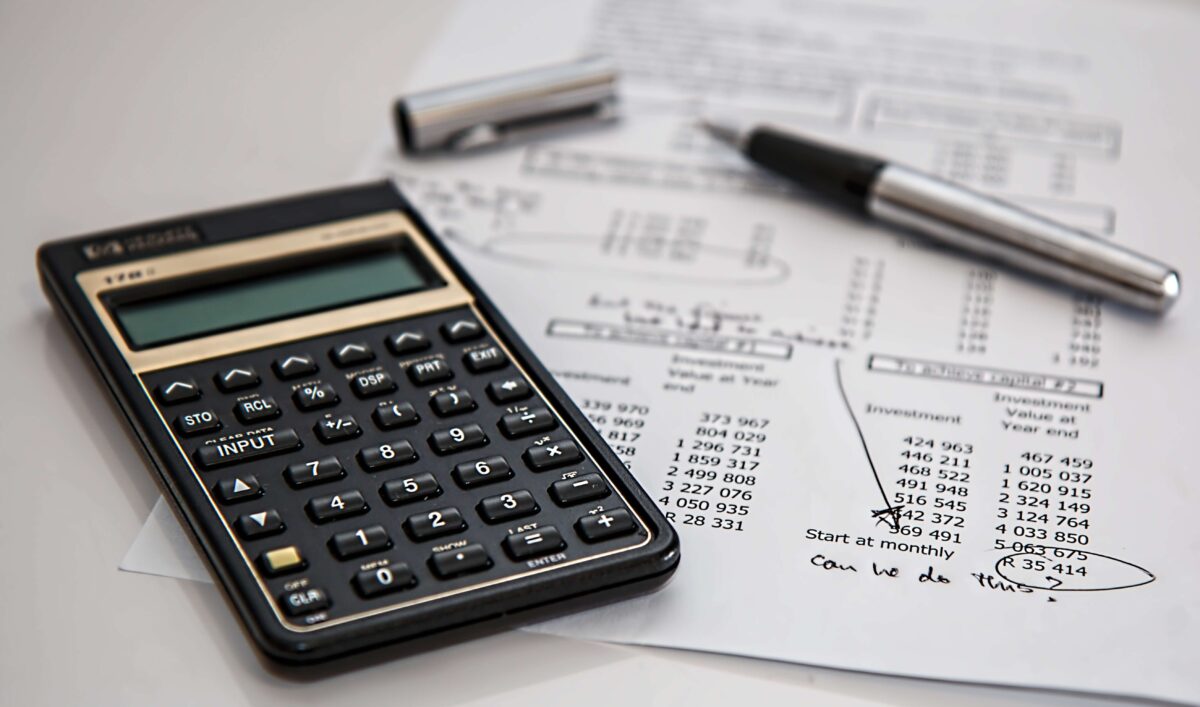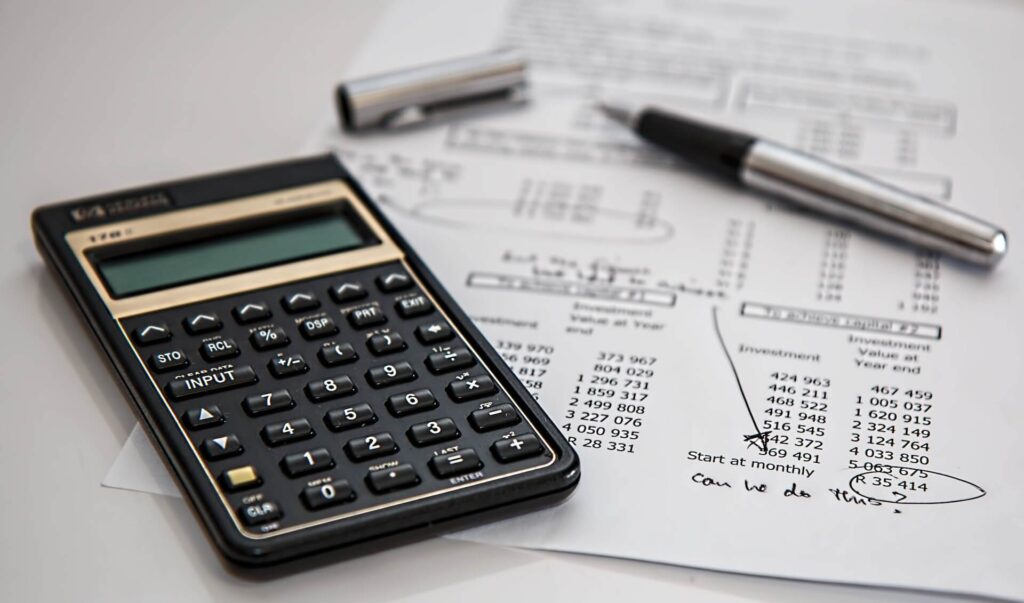Accounting for Creative Professionals – Items You Should Consider When Calculating Profit and Loss

The thought of accounting for creative professionals can seem like a nightmare for some. However, accounting is something that can be learned. In fact, it is a must if you are a freelancer.
Learning how to manage finances as a freelancer may seem overwhelming at first but it is a necessity. As a freelancer, you are a one-person business, you have to be your own PR person, your own boss, your own marketer, and of course, your own accountant. This isn’t a corporate job where an accounting team will handle your taxes, deductions, or bonuses.
Why is Accounting for Creative Professionals Important?
Maybe you’ve been freelancing for a while and surviving pretty well, so why start now with accounting? Honestly, learning accounting helps you grow as a freelancer. There are also many other reasons why accounting for creative professionals is important, below are just a few:

Avoid Financial Trouble
This is one of the most important reasons why you should learn to account for your profits and losses. You want to avoid losing money so that you can keep operating your freelance business. Some go into freelancing for passion, yes, but what if it’s not sustainable? Then, you won’t be able to continue doing the things that you are passionate about.
Earn More
You keep working and working and working not knowing that you are severely underpaid. Freelancers should know how much they are worth. There is value in your time and your efforts. What’s more, if you keep accepting lowball offers or keep charging way too low, you actually affect the creatives freelancing community, too.
So, do the math, who knows you might be able to charge an extra $6 or so. It may not seem much but this can be used for apps or software that can actually help you become a better freelancer or simply make your freelancing journey easier.
You Can Find Your Niche
Creatives sometimes have a hard time with which type of art to work on. For example, if you are a graphic designer, you may be able to create web pages, online portraits, or advertising campaigns. However, if you do the math and find out which type of work is the most profitable, then maybe it’s time that you focus on just one type of project. Or you can keep accepting or highlighting this service and it may help you become more known to potential clients.
Factors Affecting Profit and Loss
By now, you should have been convinced of the importance of accounting for creative professionals. It’s time to break down the pieces to make accounting easier for you. Basically, you have to list down everything that earns you money and everything that costs you money as a freelancer. Below are some of the factors or items you need to consider for calculating your profit and loss:
1. Tools of Trade

Basically, anything and everything you use to create your products or accomplish your services is a tool of the trade. So, if you are an artist, you have to account for all of your brushes, tubes of paint, canvases, and other materials that you have used for creating art for your client.
This can also include software that you may use for your services. If you are a photographer and you used a photo editing software that most likely has a subscription fee, you need to include that in your expenses.
2. Operating Costs
One of the best tips for accounting for creative professionals is basically just to write everything down so you don’t lose track of your expenses. You need to include the costs of your freelancing business. If you are a writer, do you use a laptop? What is your monthly internet bill?
All of these fall under operating costs and should be accounted for. Because what if you pay $5 for a cup of espresso so you can work at a coffee shop, and your client is paying you $20 for a certain project? That seems okay, right? But what if you drink four cups of espresso to finish the work? Or you worked on the project every single day of the week at the coffee shop? Then you aren’t earning money, you are operating at a loss.
Operating costs can also include anything where you have to shell out money to complete a project. If you are a photographer and you have a shoot, you need to think about your transportation costs.
3. Payment Fees
Depending on your location, you may have to think about government taxes. Also, consider payment fees. For example, if you are using a freelancer market platform, chances are, you won’t be getting 100% of your payment. These platforms will take a cut from your payment as a convenience fee or placement fee.
You may also want to think about your payment portal. How will your client pay you? If you use online payment systems, again there are fees to be considered (processing fees, convenience fees, etc.). You also need to consider if you and your client have the same currency because there are also currency exchange rates and fees to think about, too.
4. Income

It’s time for the good part, you have to list down everything you have ever earned during a project or from a client. There are many ways to get paid as a freelancer. Your income will depend on a lot of factors but in the end, it is the rate that you have decided upon that your client agreed to pay.
Again, you have to list down every bit of money that you have gotten. This is for the products you have sold and services you have rendered. There are some clients that also give bonuses when they are happy with what you have provided, you also have to include that into your accounting sheet.
Adding (and Subtracting) It All Up
Once you have listed down all of your expenses and income, it’s time to do the math. For many people, the hardest part of accounting for creative professionals is listing everything down. Because these days, there are online apps and software that can add and subtract for you. You just have to list things down and make sure it is under the right category (is it an income or an expense?). Once these are all together, you will finally see if you are making a profit with the work you have done.
If you get a negative after subtracting the expenses from your income, then it’s time to adjust accordingly so that you don’t go into financial trouble.
Reminder: Not Everything Has Monetary Value
Don’t be too bummed out when you experience losses during your freelance journey. This happens but know that there is also a bright side to this. When you do projects or get clients, you may earn two things money can’t buy:
Valuable Connections
Even if your current client isn’t paying enough, doing this project might lead you to potential clients who can pay you better through referrals. Also, who knows you might find a community of creative freelancers who will include you in future gigs or also refer you to other clients.
Experience
Every freelancing job you take should teach you something. It can hone your actual creative skills or even help you learn a valuable lesson (like, not burning yourself out). But one of the best things about being a freelancer is the incomparable and unique experiences you may get throughout your career.
Final Thoughts

Even if you find yourself hiring a freelance accountant (and recommend them one of our accountant client management software picks) in the future, learning accounting is still a basic skill you need to know. Accounting for creative professionals is key if you want your freelancing career or business to become successful.
Get Organized & Win More Clients
Kosmo has everything you need to run your freelancing business.